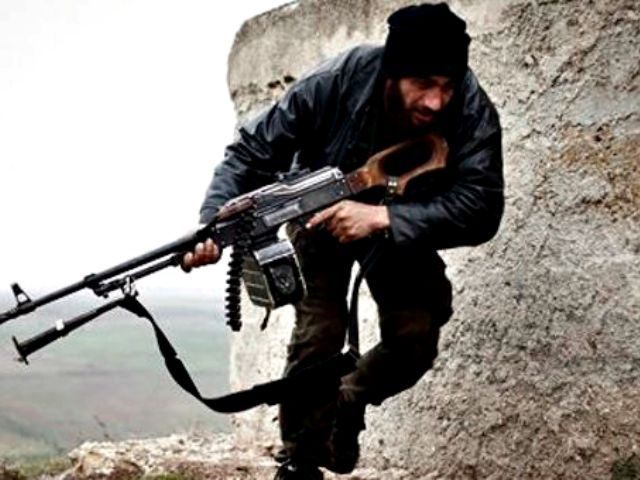Two U.S.-backed leaders of the first group of Syrian rebels deployed under the $500 million train-and-equip program authorized by Congress last year met with members of the al Qaeda affiliate in Syria last July and assured them that the American-trained force would not attack them, The New York Times (NYT) reported recently.
On July 30, Nadim Hassan, leader of Division 30, a Syrian opposition group that supplied the 54 Syrian fighters who were first sent into Syria, and Farhan Jassem, a fellow commander, “entered Syria to meet with [Syria’s al Qaeda affiliate] Nusra Front leaders and assure them that the American-trained force intended to fight only the Islamic State [ISIS/ISIL],” revealed the article on Monday.
NYT attributed that revelation to Abdul-Razaq Freiji, a Syrian Army defector, and a Division 30 commander who spoke on condition of anonymity to avoid jeopardizing his relationship with the Americans.
The two U.S.-backed leaders from Division 30 who met with the Nusra Front “and six others were promptly captured” by the Syrian al Qaeda affiliate, reported The Times, noting that “they are still being held.”
On July 31, “the Nusra Front attacked Division 30’s base in the village of Mariameen in northwestern Syria, an effort it said was to stop the American program before it could get a foothold in the country,” further explained NYT.
The NYT article pointed out that the Pentagon has conceded that its Syrian rebels training program, aimed at combating ISIS in Syria, suffers from “severe shortcomings.”
Pentagon officials are “drawing up plans to significantly revamp the program by dropping larger numbers of fighters into safer zones as well as providing better intelligence and improving their combat skills,” reported The Times.
The proposed changes came after Nusra Front jihadists attacked the first Syrian graduates of the U.S.-led training efforts and the Division 30 group they came from in late July and captured the two leaders of the U.S.-backed group and several of its fighters a day earlier.
Citing classified assessments, NYT reported that the encounter in late July “revealed several glaring deficiencies in the program.”
“The rebels were ill-prepared for an enemy attack and were sent back into Syria in too small numbers. They had no local support from the population and had poor intelligence about their foes,” it continued. “They returned to Syria during the Eid holiday, and many were allowed to go on leave to visit relatives, some in refugee camps in Turkey — and these movements likely tipped off adversaries to their mission. Others could not return because border crossings were closed.”
Some of the “classified options” currently circulating among senior Pentagon officials include increasing the size of the rebel trainees who are deployed to Syria, changing the location of the deployments to ensure local support, and providing better intelligence to the Syrian fighters.
“No decisions have been made on specific proposals, according to four senior Defense Department and Obama administration officials briefed on the matter, who spoke on condition of anonymity to discuss confidential planning,” noted NYT.
The American-backed train-and-equip program is run by the United States Special Forces, with the assistance of other allied military trainers, and is different from a parallel covert program run by the CIA.
“After a year of trying, however, the Pentagon is still struggling to find recruits to fight the Islamic State without also battling the forces of President Bashar al-Assad of Syria, their original adversary,” noted The Times.
“The willing few face screening, but it is so stringent that only dozens have been approved from among the thousands who have applied, and they are bit players in the rebellion,” it added. “The program has not engaged with the biggest, most powerful groups, Islamist factions that are better funded, better equipped and more motivated.”

COMMENTS
Please let us know if you're having issues with commenting.